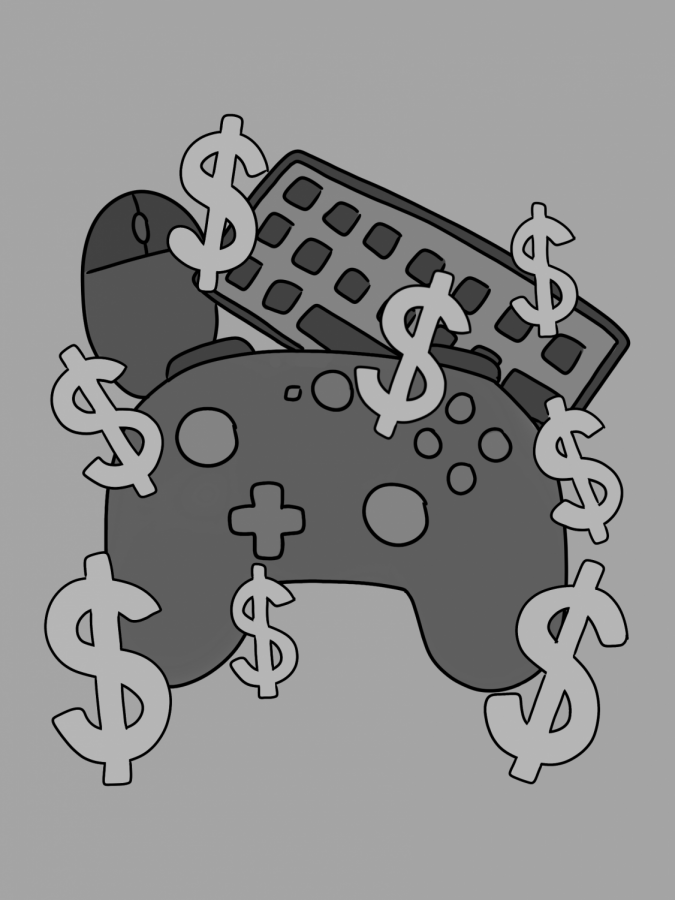OPINION: Video game developers should follow gamers’ lead and donate to charity
In March 2020, much of the world went into lockdown for the first time since the 1918 Spanish Flu. The various stages of lockdown have proved difficult for many, but some turned to video games for entertainment. Due to this, video game developers and publishers have been unfairly profiting off of greedy business tactics, questionable labor practices and negligence towards consumers. To combat this, developers should be held accountable to donate proceeds to a charitable cause.
After the surge of video gaming, the profits of video game developers and publishers quickly followed. Companies such as Electronic Arts saw their stock prices raised by nearly 100 points, regardless of their history of corruption, workplace scandals and micro-transactional greed targeted at minors. Another company, Ubisoft Corporation, saw their stock prices rise by nearly 50 points directly after a large sexual-harassment scandal that, according to Ethan Gach of Kotaku, a video game journal, resulted in “nearly 250 employee terminations related to the scandals.” Ubisoft, among many other companies, have faced various scandals related to labor abuse, yet they still have consumers giving them money. To take control of the situation and their economic fortune, companies must give back and donate proceeds.
Many video gamers on platforms like Twitch and YouTube are unfairly judged as lazy despite common efforts made by gamers to give back and donate the proceeds of their gaming. Often, gamers will use Twitch to host charity events and streams dedicated to a cause. These humanitarian events are growing in popularity, and, according to The Washington Post, livestreams are the new “telethon events, growing in popularity.” One group of charity streamers, known as “Games Done Quick,” have currently raised over $22.3 million for charities such as Doctors Without Borders and the Prevent Cancer Foundation. This benevolent action is just one example of the good deeds accomplished by video-gamers.
Although rare, some video game developers have donated proceeds to charity in the past. A video game known as “The Long Dark” was recently released in full by Hinterland Games, a Canadian studio. In a rare turn of events, Hinterland Games announced that all proceeds from the game will be donated to various Canadian charities, most of which are dedicated to environmental issues. According to an infographic published by Hinterland Games, “The Long Dark” sold three million copies, adding up to roughly around 60 million Canadian dollars. Although there is no official number on how much money was donated, this is nearly an insurmountable feat of charity. If this is the amount of money that a B-list video game developer managed to donate, an even greater impact could be made by a larger developer. Triple A developers must invest in this opportunity to do good for the world.
The scandals related to video game developers are examples of labor abuse, but due to the nature of the work related to video gaming, the scandals are downplayed in a way that would never happen in other lines of work. It is time for developers to be held accountable, and one way is for them to donate a portion of their proceeds to charities.


